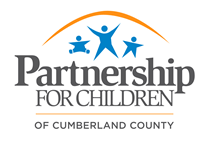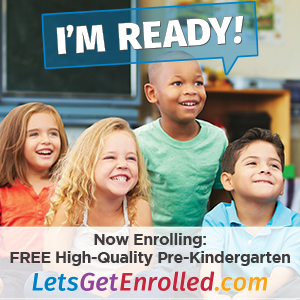The Family Focus Guide helps families and individuals in and around the Fayetteville area find resources in our community.
If you have a service-focused organization that serves families in the Fayetteville, Cumberland County area and would like to be listed, please email us at [email protected].
Information, screening, and referral for family members with special needs.
Provides institutional group care for displaced and broken-home children between the ages of 0 and 21 years old.
We offer cottage-style living in a one-of-a-kind educational environment. Our 140-acre campus is lined with a vibrant pecan orchard and home to a working farm, all situated in the heart of Lake Waccamaw, North Carolina, the largest natural lake in the state.
While at Boys and Girls Home of North Carolina, youth are taught to develop and use their strengths in positive ways. They learn conflict resolution, time management, and much more. It’s a way of life that builds self-esteem, responsibility, and character.
Assists schools with meeting the needs of at risk students in high poverty areas. School-wide services allow school improvement teams to utilize funds for every child in order to improve student academic achievement. Offers preschool programs for qualifying students at-risk of not meeting academic achievement standards.
If you are a grandparent raising your grandchildren you are not alone. There are approximately 2.5 million grandparents in the US who are solely responsible for the basic needs of their grandchildren. In Cumberland County, 3,783 grandparents are raising their grandchildren. Having someone who understands what you are going through can make a world of difference. The Partnership for Children of Cumberland County hosts a Grandparents Raising Grandchildren Support Group just for this reason. Our support group meets monthly and provides a way for grandparents to share stories and tips, spend times with others who are in similar situations, and learn about services available in the community.
Head Start is a federal matching grant program that was initiated in the mid-1960s as part of President Lyndon B. Johnson's "War on Poverty." The mission of the Head Start program is to "promote school readiness by enhancing the social and cognitive development of children through the provision of educational, health, nutritional, social and other services to enrolled children and families" (ACF, 2008). For eligible low-income children, Head Start provides free access to preschools, which are provided primarily in centers and are expected to conform to a specific set of guidelines laid out in the Head Start Program Performance Standards and other regulations (45 CFR 1301-1311, 2006). In addition to early childhood education, Head Start incorporates parental involvement and facilitates access to health care services; most Head Start programs also provide at least one meal to children during the day. The program requirements are flexible to meet the needs of the community, allowing individual programs to determine such program characteristics as the number of hours per day, or months per year, that a participation must attend; curriculum; teacher salary; and mode of delivery (in a home, a school, or a center)
Provides home visits, infant care, and parenting classes.
The Nurturing Parenting Programs are family-based programs that can be offered in a group setting, in a home-visiting setting, or as a combination of both group meetings and home visitation.[1] Components of the program include 1) developing empathy, facilitating parent-child bonding and attachment; 2) teaching parents appropriate expectations of children’s growth, particularly ways to promote children’s feelings of self-worth, trust, and security; 3) employing discipline that promotes the dignity of children and adults; 4) empowering adults and children to nurture themselves, others, and their environment; 5) promoting positive self-worth; and 6) helping all family members develop a meaningful level of selfawareness and acceptance. Parent education programs that are designed to prevent the development of poor parenting behaviors are short-term, approximately five to 18 sessions in length. Parenting intervention programs are designed to “intervene” to prevent escalation in the early stages of maltreatment. These are generally from 12 to 20 sessions. Parenting treatment programs are designed to “treat” abusive and neglectful parent-child or parent-teen dysfunctional interactions. These are generally 15 to 25 sessions.
Prevent Child Abuse North Carolina (PCANC) is the only statewide organization dedicated to the prevention of child abuse and neglect. Through investment in innovative programs proven to prevent child maltreatment before it occurs, PCANC helps North Carolina's communities decrease factors that put children at risk for abuse and increase factors that encourage children to thrive. Through our offices in Raleigh, we serve every community in North Carolina.
Our youth program focuses on academic and character education to help reduce juvenile delinquency. Our adult program focuses on vocational and character education to help reduce recidivism.
Provide therapy and self-help groups on a variety of mental health needs. Specialize in mood disorders, behavior concerns at home and school. We also offer counseling on domestic violence and parenting children with Mental health needs.
9:00-6:00
Other appointment times are available on a as needed basic.
Enjoy fun and playful activities with your child and build a tight community of like minded moms to share advice, tips and most importantly laughter. Support. Connect. Empower. Make a difference.
As moms ourselves we understand that life is about finding balance and nurturing our minds and spirits as well as our bodies. By joining a Fit4Mom Village Playgroup and Events Club in your area, you will not only enjoy fun and playful activities with your child, but will build a tight community of like minded moms to share advice, tips and most importantly laughter.
Fit4Moms' Club, powered by Stroller Strides, consists of three essential components:
1. Free Playgroups (once per week) Our goal is to provide meaningful experiences for both mom and child(ren). We facilitate uplifting supportive conversation for mom and developmental activities for children that emphasize wonder, discover and creativity.
2. Moms’ Nights Out (once per month) This is a time for moms! The goal is to provide an activity to allow your moms group to re-discover adult conversation and personal passions.
3. “Moms with a Mission” Our goal is to provide you with a platform to help better the community where you live and play. We organize and inspire members to participate in activities focused on giving back to children, families and the environment.
You can find more information about these events and RSVP on our Facebook page at Stroller Strides of Fayetteville, NC
Adolescent pregnancy recreational services for children and youth to include parent involvement. Programs are school-based and community-based. Parent support groups are encouraged. Empowers teens and preteens with self-control to reduce risky behaviors and improve self-image.
Established in 1964, the Action Pathways, formerlly Cumberland Community Action Program, Inc. (CCAP), strives to develop and operate projects that promote the economic and social well-being of individuals, children, families, and communities. CCAP has a long history of providing sustainable programs to the surrounding community with a visible impact throughout southeastern North Carolina, providing life-changing assistance to hundreds of thousands of individuals and families on an annual basis. CCAP is the parent organization for the Second Harvest Food Bank of Southeast North Carolina (SHFB SE NC); the Consumer Credit Counseling Services (CCCS); the Comprehensive Housing and Weatherization Programs; Self-Sufficiency Programs (ASPIRE); and Head Start. CCAP is accredited by the Council on Accreditation. For more information CCAP programs and services, visit www.ccap-inc.org or call (910) 485-6131.
Our goal is to improve the quality of every life we touch. To achieve that, our Fayetteville doctors, surgeons and staff are committed to excellence in every aspect of the healthcare process. Our values of patient-centeredness, integrity, innovation, teamwork, diversity and accountability help us create a better experience for every patient, every time.
The Nurturing Parenting Programs are family-based programs that can be offered in a group setting, in a home-visiting setting, or as a combination of both group meetings and home visitation.[1] Components of the program include 1) developing empathy, facilitating parent-child bonding and attachment; 2) teaching parents appropriate expectations of children’s growth, particularly ways to promote children’s feelings of self-worth, trust, and security; 3) employing discipline that promotes the dignity of children and adults; 4) empowering adults and children to nurture themselves, others, and their environment; 5) promoting positive self-worth; and 6) helping all family members develop a meaningful level of selfawareness and acceptance. Parent education programs that are designed to prevent the development of poor parenting behaviors are short-term, approximately five to 18 sessions in length. Parenting intervention programs are designed to “intervene” to prevent escalation in the early stages of maltreatment. These are generally from 12 to 20 sessions. Parenting treatment programs are designed to “treat” abusive and neglectful parent-child or parent-teen dysfunctional interactions. These are generally 15 to 25 sessions.
Joining hands with community partners we provide a safe and child-friendly Center that supports the prevention, investigation and prosecution of child abuse. We provide forensic interviewing services, and victim family advocacy to referred clients. We provide prevention programs to professionals and the community at-large such as
Annual Community Prevention Breakfast
Community Pinwheel Campaign
Human Trafficking Awareness Forum
Launching Hope
Partner in Prevention (PIP)
Professional Educational Trainings for Child Abuse Investigators
Stewards of Children Training
Meals on Wheels for adults 60 and over. Minor home repair, in home-aid, telephone reassurance program, Senior companion program and Senior Health Insurance Program (SHIP) which helps to better understand medicare.
Provide direct support for families with special needs. Offer specialized in home nursing care and CNA's for high risk obstetrics, postpartum, pediatrics, and adults.



